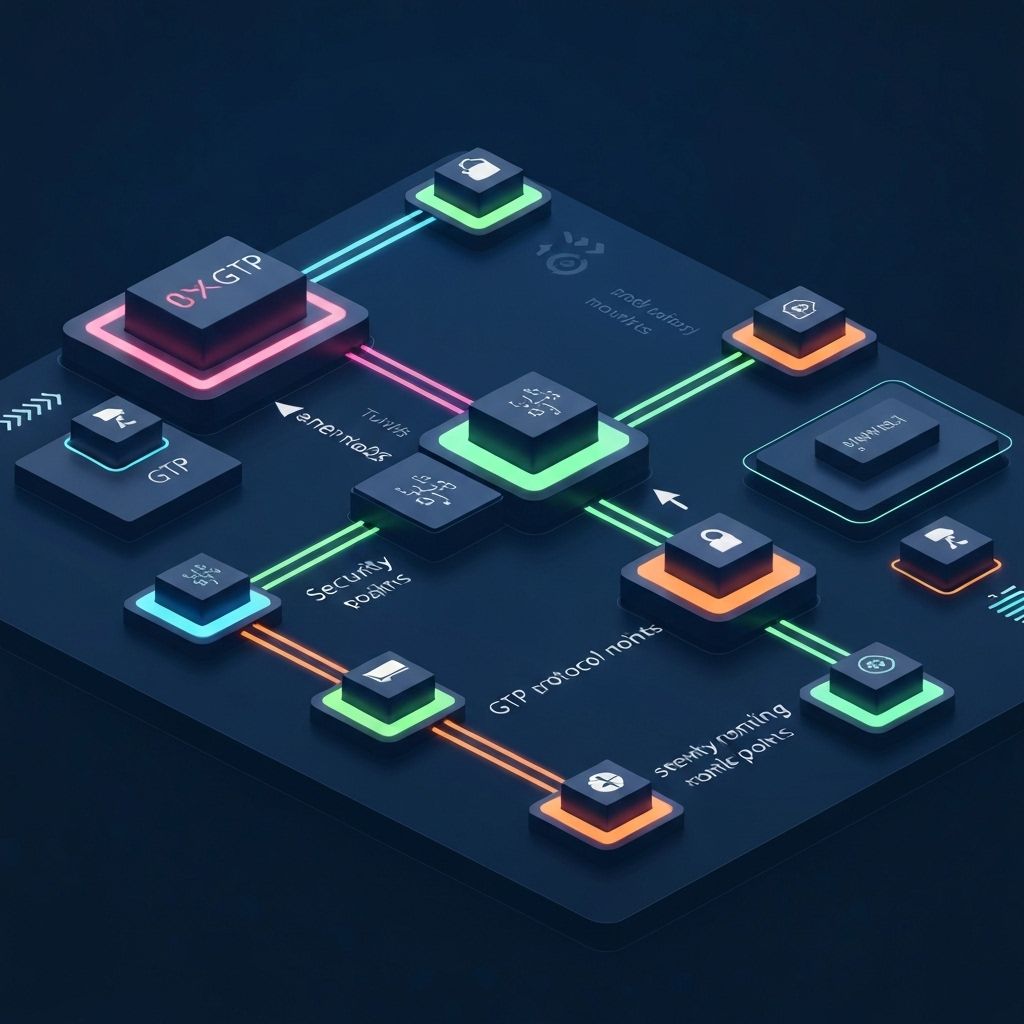GTP Attack Flows: Interactive Visualization
Explore interactive visualizations of GTP (GPRS Tunneling Protocol) attack flows. These visualizations demonstrate the step-by-step progression of various attack scenarios, detection points, and recommended countermeasures for telecommunications security professionals.
Understanding GTP Protocol Security
The GTP protocol is fundamental to mobile data services in 2G, 3G, and 4G networks, serving as the backbone for user data tunneling between different network elements such as SGSN (Serving GPRS Support Node) and GGSN (Gateway GPRS Support Node). Understanding attack flows against GTP infrastructure is critical for telecommunications security professionals to protect subscriber privacy and maintain network integrity.
These interactive visualizations provide a comprehensive view of real-world attack scenarios that have been observed in telecommunications environments or documented in security research. Each flow includes detailed attack steps, detection opportunities, and practical countermeasures.

Interactive Attack Flow Analysis
Explore comprehensive attack scenarios targeting GPRS Tunneling Protocol infrastructure. Understand attack vectors, identify detection opportunities, and implement effective defensive countermeasures.
Select Attack Scenario
Choose an attack scenario below to view detailed flow analysis, detection points, and countermeasures.
This attack flow demonstrates how an attacker can hijack GTP tunnels to redirect user traffic through malicious infrastructure.
This attack flow demonstrates how an attacker can extract sensitive subscriber information through GTP protocol vulnerabilities.
This attack flow demonstrates how an attacker can disrupt mobile network services through GTP-based denial of service attacks.
Attacker
Malicious actor with access to the telecom network
The attacker has gained access to the telecom network, either through compromised equipment, insider access, or by exploiting vulnerabilities in the network perimeter.
Network Reconnaissance
Identify GTP nodes and tunnel endpoints
The attacker performs passive monitoring to identify GTP-C and GTP-U traffic, mapping out the network topology, TEID values, and subscriber information. This reconnaissance phase is critical for understanding the target environment.
Capture GTP-C Messages
Intercept GTP control plane messages
The attacker captures GTP-C messages to identify active tunnels, TEIDs (Tunnel Endpoint Identifiers), and subscriber information. This provides the necessary information to craft malicious GTP messages in later stages.
Forge Update PDP Context
Create malicious Update PDP Context Request
The attacker crafts a forged Update PDP Context Request message with modified tunnel endpoints. This message will redirect the user's data traffic through the attacker's infrastructure while maintaining the appearance of a legitimate connection.
Inject GTP-C Message
Send forged message to GGSN/PGW
The attacker injects the forged Update PDP Context Request into the network, targeting the GGSN/PGW. The message appears to come from a legitimate SGSN/SGW and includes valid session identifiers and TEIDs obtained during the reconnaissance phase.
Tunnel Redirection
User traffic flows through attacker's infrastructure
The GGSN/PGW processes the forged Update PDP Context Request and modifies the tunnel endpoint. User traffic now flows through the attacker's infrastructure, allowing for traffic interception, modification, or injection before being forwarded to the legitimate destination.
Detection Point 1
Unusual GTP-C message patterns or volumes may indicate reconnaissance activity.
Detection Point 2
Unexpected Update PDP Context Request messages from unusual sources.
Detection Point 3
Sudden changes in tunnel endpoints without corresponding legitimate network events.
Why GTP is Vulnerable to These Attacks
The GTP protocol is particularly vulnerable to these types of attacks due to several inherent design characteristics that were established when security was not the primary concern:
Limited Authentication
Early GTP versions lack robust authentication mechanisms between network elements
Unencrypted Control Messages
Many deployments transmit GTP control messages without encryption, exposing them to interception
Trust-Based Architecture
Trust relationships between network elements can be exploited if one element is compromised
Complex State Machines
Protocol state machines are difficult to secure completely due to their complexity
Legacy Compatibility
Requirements to maintain backward compatibility preserve vulnerable features
Insufficient Validation
Lack of comprehensive message validation allows malformed or malicious packets
Understanding these attack flows is essential for implementing effective defense-in-depth strategies for GTP infrastructure. Each flow demonstrates not only the attack progression but also key detection points where monitoring and controls can be implemented to protect your network.
Key Components of GTP Attack Flows
Each attack flow visualization is structured to provide comprehensive insights into the attack lifecycle, from initial reconnaissance to final impact. Understanding these components helps security teams develop robust defense strategies.
🎯Initial Access & Reconnaissance
How attackers gain initial access to the telecommunications network and map GTP nodes. This phase includes network scanning, protocol fingerprinting, and identifying vulnerable network elements.
⚡Exploitation Techniques
Specific techniques used to exploit GTP protocol vulnerabilities, including message injection, session hijacking, and tunneling attacks that compromise network security.
👁️Detection Points
Critical points in the attack flow where detection is possible through anomaly detection, traffic analysis, and behavioral monitoring of GTP signaling patterns.
🛡️Countermeasures & Defense
Recommended security controls to prevent or mitigate attacks, including GTP firewalls, message validation, rate limiting, and network segmentation strategies.
Practical Applications for Security Teams
Telecommunications security professionals can leverage these visualizations to enhance their security posture and operational capabilities:
- Threat Intelligence: Understand the mechanics of GTP-based attacks and stay informed about emerging attack vectors in mobile network infrastructure
- Vulnerability Assessment: Identify vulnerable points in your network architecture and prioritize security improvements based on attack likelihood and impact
- Detection Strategy Development: Develop effective detection strategies by understanding where and how attacks manifest in network traffic and signaling
- Security Control Implementation: Implement appropriate countermeasures based on your network topology, risk profile, and operational requirements
- Team Training & Awareness: Train security teams on GTP security threats using realistic attack scenarios and hands-on visualization tools
- Security Assessment & Penetration Testing: Conduct more effective security assessments by understanding attacker methodologies and common exploitation paths
Educational Purpose Notice
These attack flow visualizations are provided exclusively for educational purposes to help telecommunications security professionals understand and defend against GTP security threats. The information should be used responsibly and ethically to improve network security posture. Unauthorized testing or exploitation of telecommunications networks is illegal and unethical.